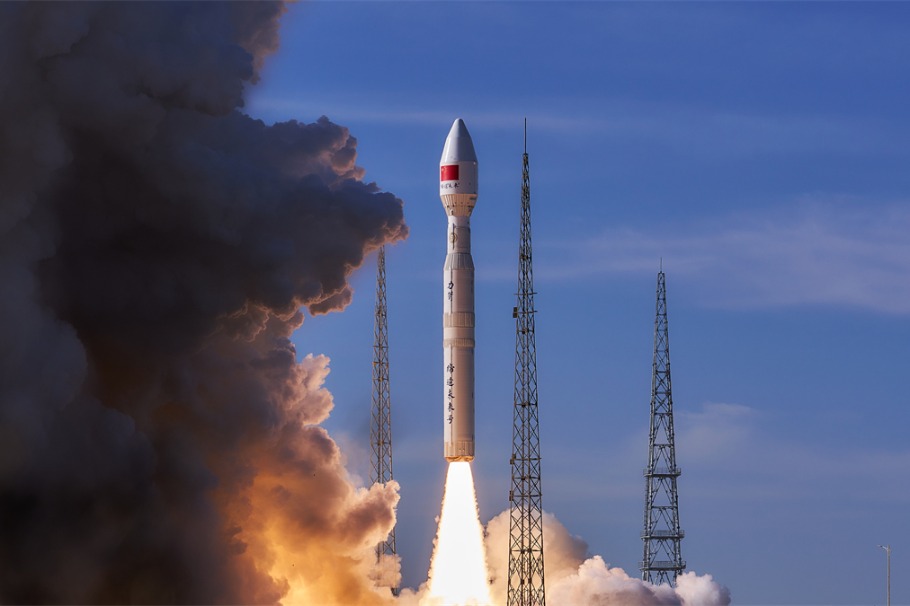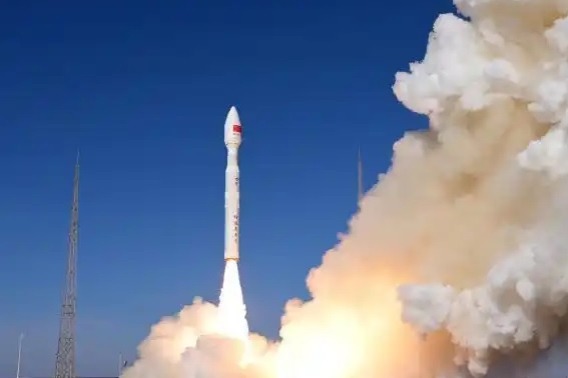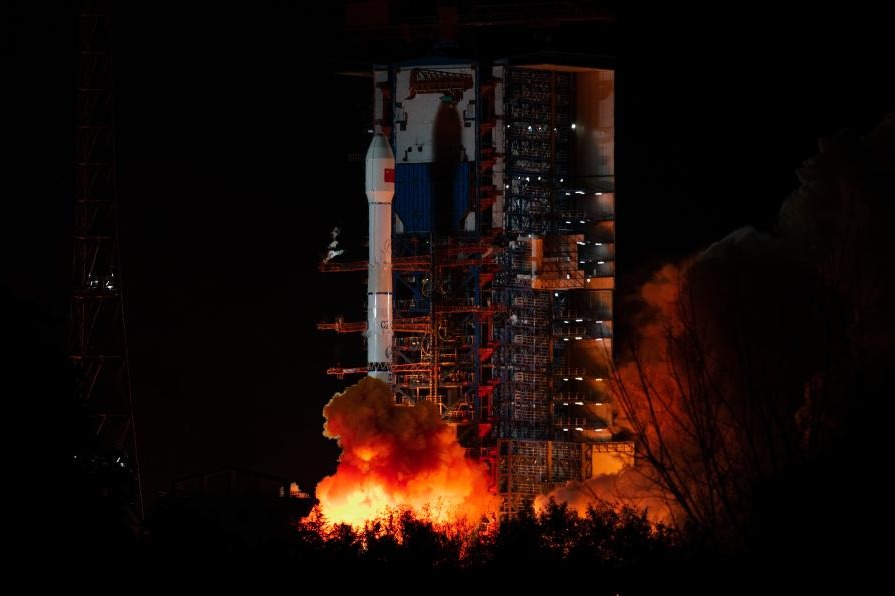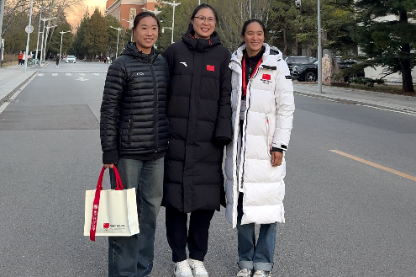Chinese scientists achieve ultra-low temperature in supersolid candidate

BEIJING -- Chinese scientists have achieved ultra-low temperature refrigeration -- below minus 273 degrees Celsius -- in a recently synthesized supersolid candidate.
The temperature was reached without the use of liquid helium, a conventional material that has long been used in ultra-low temperature refrigeration, according to a paper published in Nature.
Supersolid is a quantum state of matter that possesses a solid structure and shows superfluidity simultaneously. A team of researchers at the University of Chinese Academy of Sciences and their collaborators proved the presence of this exotic state in the synthesized supersolid candidate, a cobalt-based quantum magnetic material.
During the subsequent demagnetization cooling process of the candidate, the researchers observed an ultra-low temperature below 273 degrees Celsius, according to the paper.
The findings have demonstrated a new route to extreme cooling that can be used in fields such as deep space exploration, quantum science and materials science, said Su Gang, the leader of the team.
- The Olympic spirit: a guiding light in everyday life
- Ambassadors promote China-Africa cooperation at lecture tour in Shanxi
- China's poverty alleviation achievements continuously consolidated, expanded in 2025
- China achieves key results in 10-year fishing ban on Yangtze River
- Line 4 of Fuzhou Metro begins operation
- Taiwan people pick 'dismiss' as most representative word of 2025




































